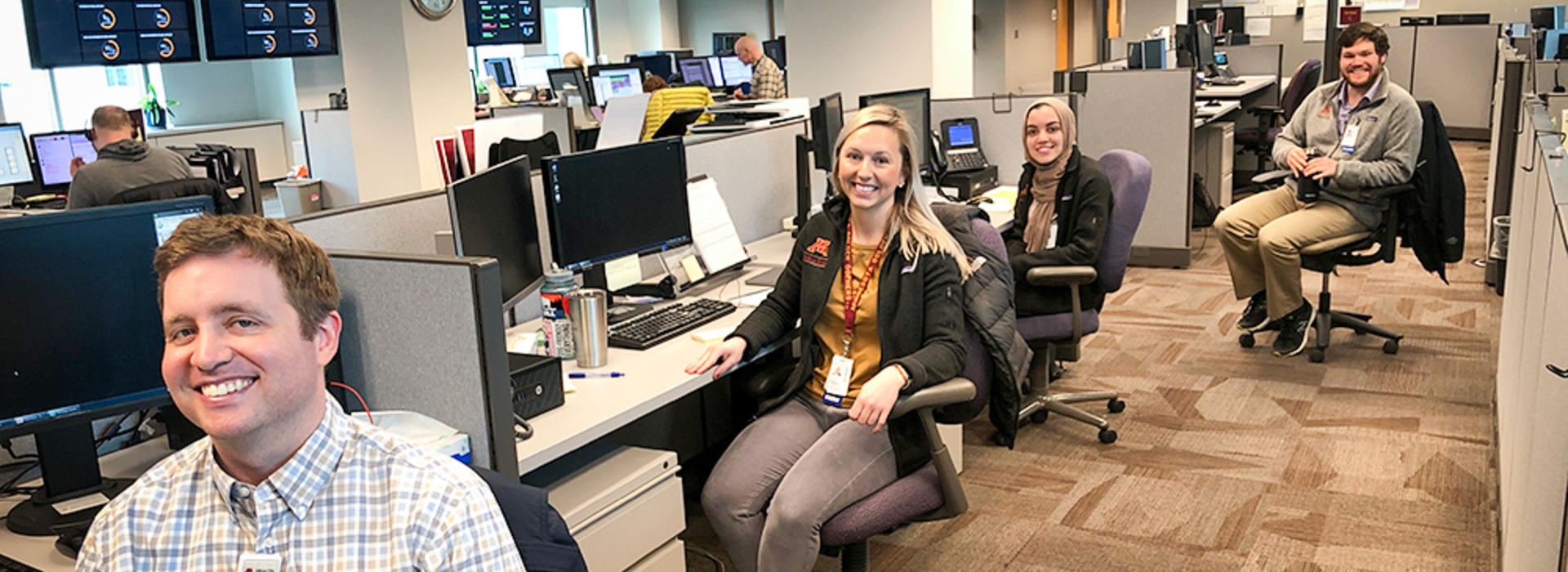
New Curriculum Equips U of M Medical Students to Support COVID-19 Efforts
University of Minnesota Medical School Professor Karyn Baum, MD, MSEd, MHA, and Assistant Professor Brian Hilliard, MD, both in the Department of Medicine, saw an impending challenge approaching as COVID-19 began sweeping through the nation and overtaking some hospital systems in early 2020.
As COVID-19 continued to spread, medical students were ordered to stay home for their safety and the safety of others. However, the students were craving an opportunity to serve their community in some way during this pandemic, despite the stay-at-home order.
Drs. Baum and Hilliard, with the help of Jessica Hane, MD, a fourth-year Medicine/Pediatric resident with an interest in educational leadership, needed to find a way to offer an education for these students, as well as a way to use their skills to mitigate the burden that daunts the frontline healthcare providers in the hospital system.
“We knew our students still wanted to contribute, so we wanted to find ways that students could do meaningful work, safely,” Baum said.
The group quickly put together a brand new curriculum for third- and fourth-year medical students—as part of their Medical Intensive Care Unit rotation—designed to remotely equip them with the ability to help clinical staff at M Health Fairview throughout the COVID-19 patient surge now and in the coming weeks.
The new curriculum, which took Drs. Baum and Hilliard just 11 days to develop, enrolled its first group of medical students on March 23. As the medical lead for the System Operations Center, Dr. Baum helps oversee patient placement and flow at seven locations in the metro area. Their students have been efficiently, safely and remotely helping from the Systems Operations Center by assisting with patient placement, transfers and patient flow. The curriculum focuses on teaching medical students appropriate triage protocols and how to assist frontline providers with the mountain of discharge paperwork they are now facing as patients begin to flood the hospitals.
“Many patients require transfer to another location, such as the new COVID-19 hospital at Bethesda, to ensure efficient patient flow and distribution,” Dr. Baum said.
Students review patient charts and craft a detailed summary for providers to review and approve, which significantly reduces the amount of time providers have to spend on the paperwork. Third-year medical student, Zineb Alfath, says this course is making it possible for providers to use that extra time to be with patients.
“It's a completely different experience compared to being in the ICU right now, but it's so inspiring to see how quickly people all across our healthcare system have moved into new roles to make patient care as safe and efficient as possible,” Alfath said. “As third- and fourth-year medical students, we are applying the skills and knowledge we’ve accumulated over the past few years to help with documentation and are able to participate in decision-making about patient placement—tasks that, as our hospitals get busier, will hopefully allow providers to spend more time with patients.”
The curriculum also offers a series of self-paced activities and reading materials about COVID-19 to educate medical students on how the infection behaves, who providers will test and why and the medical ethics and protocols for rationing resources if capacity issues persist. Drs. Baum and Hilliard are building predictive models, creating new assignments and have designed a fully functional syllabus for this hybrid course.
There is an aspect of interprofessional education as well, which allows medical students to collaborate with students from the School of Pharmacy on discharge medication, reconciliation and pharmaceutical literature about treatments for COVID-19 as they deal with the same patient population. It’s an opportunity that third-year medical student, Ryan Duff, says is rewarding.
“This unique opportunity allows us to use our medical knowledge to help triage patients to appropriate medical facilities, at a time when emergency departments can become overwhelmed,” Duff said. “It is rewarding to know our training is helping to make a real impact in the community, even when our regular clinical rotations are on hold.”